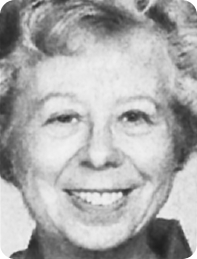About Us
Brisben Center History
Transforming Lives at the Brisben Center
The Brisben Center got its start in 1987, when members of six downtown Fredericksburg churches became collectively concerned about the number of people, later estimated to be 500—40% of them women and children—who each year had no permanent shelter. It incorporated the following year as the Church Shelter Board for the Rappahannock Area, Ltd.
Run by volunteers, it operated for the first several years as a cold-weather, nights-only shelter—first at St. George’s Episcopal Church and then at the old Maury School. In 1998, it moved to an 80-bed facility on Essex Street. By then, it was staffed and open 24/7 year-round. It was also renamed the Thurman Brisben Homeless Shelter (dba Thurman Brisben Center) after one of its much-revered founders.
From its genesis, the shelter accepted men, women, and children—individuals and families of nearly every description. With the transition to a full-time facility, however, it soon became clear that long-term, “chronically” homeless individuals with untreated substance abuse and/or serious mental health challenges (less than 14% of the homeless population) do not mix well with others who are simply trying to get back on their feet financially.
Following numerous incidents of shelter violence and substance abuse in 2005, the City imposed random drug/alcohol testing and other restrictions.
Erik Nelson, the City’s senior planner at the time, explained in 2005: “What we found at Thurman was people like mothers weren’t inclined to go to the shelter because they feared for the safety of their kids. It’s unfair to blast the shelter for not serving both populations because realistically it just can’t be done.”
After several years, the Essex Street property was slated for re-development and the Brisben Center was forced again to move. It took four difficult years and many false starts before its current location in the Battlefield Industrial Park was settled—albeit with significant restrictions. Despite the board’s best efforts, a downtown location simply could not overcome a groundswell of opposition. On the other hand, the construction of a place for transformation from scratch has offered enormous opportunities to resolve homelessness.
Anna Thurman Brisben (1916-1990)
One of the founders of the organization that bears her name, Anna Thurman Brisben made it her mission to help the many homeless men, women, and children she came across from her office at St. George’s Episcopal Church. She listened, counseled, got them medical attention, and helped them apply for social services, helped them get jobs and back on their feet. People who were homeless could always turn to her, and countless did.
The Brisben Center can trace its compassion, integrity, and sheer determination back to this dynamo of a woman.
“She was the tiny lady who looked like the wind could blow her over, but when she put her hands on her hips and stared down (actually up at) the men. They would meekly do anything she said!” reminisced a volunteer.
Mrs. Brisben had the wisdom and the vision to understand that it takes community working together to address a tragedy as complex and unremitting as homelessness. Each part of it has a role to play and can, as her father exhorted her to do, “brighten the corner where you are.”

“It was heartening to find such widespread concern in the community for the plight of the homeless. Though the shelter is not a permanent solution, it is a first, emergency measure out of which more permanent solutions are growing.”
– Anna Thurman Brisben, 1988
Our Staff
Christina Craft
Bookkeeper
ccraft@brisbencenter.org
Phone Ext. 124
Christopher Payton
Resource Development Officer
cpayton@brisbencenter.org
Phone Ext. 118
Danyelle Hudson
Life Skills Coach – Case Manager
dhudson@brisbencenter.org
Phone Ext. 117
Nelinda D'Avignon
Joeseph Cooper, Jr.
Data and Fundraising Assistant
jcooper@brisbencenter.org
Phone Ext. 120
Tammy Hopkins
Kitchen Operations Manager
thopkins@brisbencenter.org
Phone Ext. 112
David Cooper, MSW, MDiv
Chief Executive Officer
dcooper@brisbencenter.org
Phone Ext. 127
Alice Stanton
Children’s Progams and Events Specialist
astanton@brisbencenter.org
Phone Ext. 114
Shelly Shipman
Life Skills Coach – Sr. Case Manager
sshipman@brisbencenter.org
Phone Ext. 113
Ren Mickens
Volunteer Coordinator
lmickens@brisbencenter.org
540-899-9853 x 133

Our Board of Directors
Paul Stanton, CAPN, USN, Ret.
Chair & President (Officer & Director)
David Cooper, MSW, MDiv, CPM
Chief Executive Officer (officer & ex officio director)
David Gazetta, Retired RR Executive
Vice Chair – Chair Elect (director)
Carol Allison, Family Life Consultant, Ret.
Secretary (Officer & director)
Roberto Canizares, MD Physician, Ret.
Emeritus Director
Rick Nehrboss, Business Owner, Ret.
Director
Carolyn Johnson VP, Chief Retail Operations Officer
Treasurer (officer & director)
Tony Lewis, Assistant Principal, FXBG Public Schools
Director
Sandra Pace, Owner, Fitness Equipment Repair & Assembly
Director
Dr. Christopher Kilmartin, Professor Emeritus, Pyschology, Mary Washington U
Director
Edwin Watson, Lecturer, Germanna Community College
Director
Chris Chitty, Esq.
Director
Reflections
Letter from
the CEO
A Child Reflects on
Innkeeping
On Personal
Responsibility and Mercy
Are you interested in serving your community and making a difference? Apply to work with the Brisben Center. Check our Job Listings.